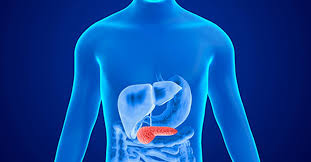
Pancreatitis
Due to the holiday period being a time of relaxation and over indulgence, we can become pray to unhealthy eating habits such as a diet high in fat content and drinking alcohol in excess. This can put a strain on our digestive system leaving us vulnerable to diseases such as pancreatitis
Understanding Pancreatitis
Pancreatitis is an inflammatory condition that affects the pancreas, a crucial organ in our digestive system. This article will provide an informative guide about this condition, its causes, symptoms, and the current treatments available.
What is Pancreatitis?
The pancreas is an organ located behind the stomach. It plays a key role in aiding digestion and regulating our body’s sugar levels. Pancreatitis occurs when this organ becomes inflamed. The condition can be acute, lasting a few days, or chronic, where the inflammation persists over many years.
What Causes Pancreatitis?
Pancreatitis can be caused by several factors:
Gallstones: These are hardened deposits in the gallbladder that can block the pancreatic duct, leading to inflammation.
Excessive alcohol consumption: Chronic, heavy drinking can lead to inflammation in the pancreas.
Certain medications: Some drugs can cause pancreatitis, though this is a rare occurrence.
Infections, trauma or surgery: These can sometimes lead to pancreatitis.
Genetic predisposition: Some people may have a genetic predisposition to the condition.
It’s important to note that sometimes, the cause of pancreatitis isn’t known. This is known as idiopathic pancreatitis.
Symptoms of Pancreatitis
The symptoms can vary depending on whether you’re experiencing acute or chronic pancreatitis.
Acute pancreatitis symptoms include:
Upper abdominal pain that may radiate to your back or worsen after eating
Fever
Rapid pulse
Nausea and vomiting
Tenderness when touching the abdomen
Chronic pancreatitis symptoms include:
Upper abdominal pain
Unexplained weight loss
Oily, smelly stools (steatorrhoea)
If you’re experiencing severe abdominal pain, seek medical attention immediately as it may be a sign of a serious condition.
Diagnosis and Treatment
Diagnosis of pancreatitis typically involves blood tests, imaging studies like CT scans, and sometimes endoscopic tests. These tests help to view the pancreas and check for any abnormalities.
Treatment for pancreatitis aims to relieve symptoms and prevent further damage to the pancreas. For acute pancreatitis, this may involve hospitalisation, fasting to let the pancreas rest, intravenous fluids, and pain medication. In some cases, surgery may be necessary to remove gallstones or the pancreas itself.
For chronic pancreatitis, treatment focuses on pain management, dietary changes, enzyme supplements to aid digestion and, in some cases, surgery to remove a portion of the pancreas.
If alcohol is the root cause, abstaining from alcohol is paramount.
Conclusion
Pancreatitis is a serious condition that requires immediate medical attention. If you or someone you know is experiencing symptoms, don’t hesitate to seek medical help. In Spain, the National Health Service, as well as an excellent network of private hospitals can provide comprehensive care for individuals with pancreatitis, from diagnosis to treatment and aftercare.
You can find a list of hospitals and clinics in the ESHA Spain business directory
Prevention is always better than cure, so adopting a healthy lifestyle – like maintaining a balanced diet, regular exercise, and moderating alcohol consumption – can go a long way in preventing pancreatitis. Remember, your health is in your hands.
Leave a reply




Leave a reply